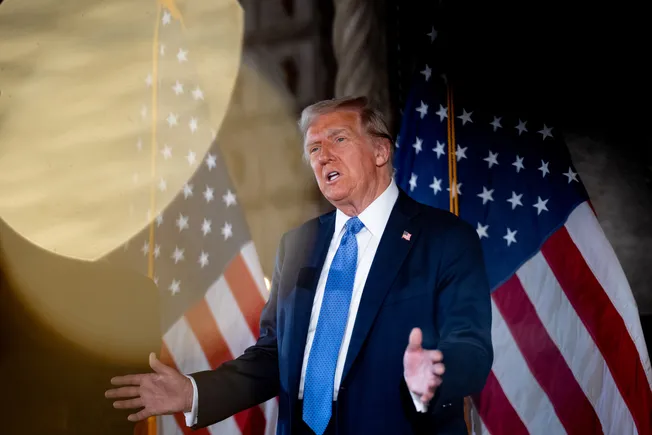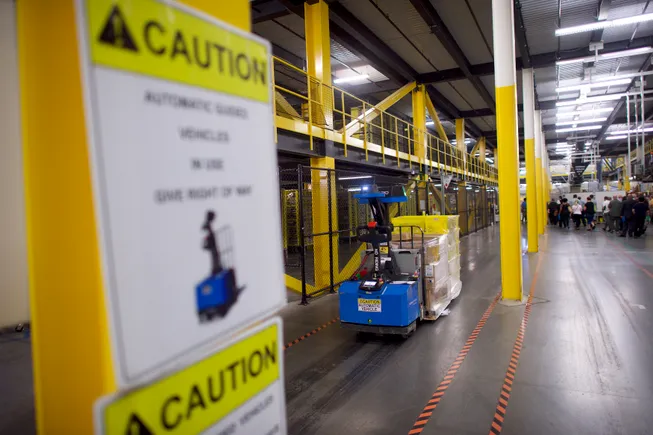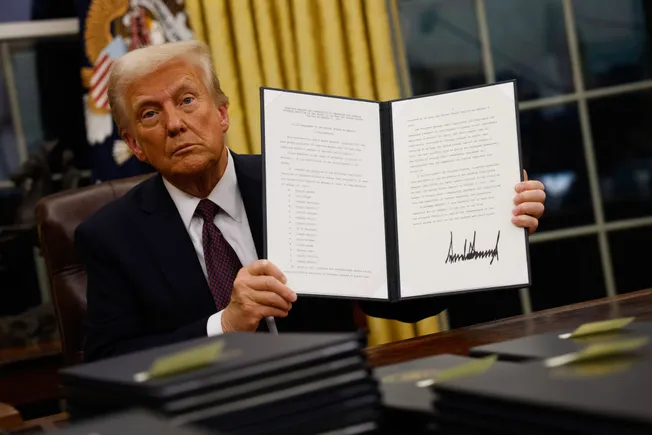Dive Brief:
- President-elect Donald Trump plans to fire federal workers who don’t return to the office, he told reporters during a Dec. 16 press conference at Mar-a-Lago.
- “If people don’t come back to work, come back into the office, they’re going to be dismissed,” Trump said. “Somebody in the Biden administration gave a five-year waiver of that so that for five years people don’t have to come back into the office […] It’s ridiculous. So it was like a gift to a union and we’re going to obviously be in court to stop it.”
- Trump’s comments follow a few weeks after Elon Musk and Vivek Ramaswamy, proposed heads of the future Department of Government Efficiency, published an op-ed in the Wall Street Journal calling for a federal RTO to spur “voluntary resignations.”
Dive Insight:
President-elect Trump is likely referring to a deal between the American Federation of Government Employees, the largest federal workers’ union, and the Social Security Administration. The deal, reached earlier this month and first reported by Bloomberg News, allows tens of thousands of Social Security Administration employees to telework between two and five days per week, depending on their role, through 2029.
AFGE pushed back on Trump’s comments in a statement released Monday.
“Telework and remote work are tools that have helped the federal government increase productivity and efficiency, maintain continuity of operations, and increase disaster preparedness,” AFGE President Everett Kelley said in a statement, noting the policy also helps with recruitment and retention.
“Rumors of widespread federal telework and remote work are simply untrue,” he said. “More than half of federal employees cannot telework at all because of the nature of their jobs, only ten percent of federal workers are remote, and those who have a hybrid arrangement spend over sixty percent of working hours in the office.”
Federal employees, like many in the private sector, have resisted efforts to force them back into the office post-pandemic. While AFGE was able to negotiate a hybrid solution for SSA workers, the U.S. Department of Labor’s union, the National Council of Field Labor Locals, was less successful in securing such a deal; remote DOL employees were mandated to return Dec. 1.
While Trump — potentially taking advice from Musk and Ramaswamy — may have some tools to force federal workers back into the office, there could be a few legal barriers that prevent a return across the board.
Unions are one potential obstruction. “Collective bargaining agreements entered into by the federal government are binding and enforceable under the law,” Kelley said in a statement. “We trust the incoming administration will abide by their obligations to honor lawful union contracts. If they fail to do so, we will be prepared to enforce our rights.”
The U.S. Equal Employment Opportunity Commission has also long provided for telework as a disability accommodation, potentially opening up legal battles if the administration attempts to bar such accommodations outright.






Leave a Reply